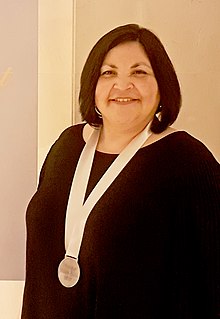A Quote by Eden Robinson
Fewer publishers mean you have a limited set of aesthetics, so you know who can and can't send your work to. You have more situations where you take the offer or don't get published or you learn to self-publish.
Related Quotes
There's probably more of a struggle to get material and narratives published that really speak to black culture. And that has a lot to do with the mergers and buyouts and the corporations being more in control of the purse strings. We find that the projects have to come with higher expectations rather than books that just should be published. That's disturbing because we might find fewer and fewer children's books by African Americans or with black cultural themes.
It's a shame publishers send rejection slips. Writers should get something more substantial than a slip that amounts to a pile of confetti. Publishers should send something heavier. Editors should send out rejection bricks, so at the end of a lot of years, you would have something to show besides a wheelbarrow of rejection slips. Instead you could have enough bricks to build a house.
Self-publishing in comics is core to the whole artform. There is no scarlet letter in comics as there still is, to some degree, in prose. As no publisher for a long time would publish serious work in comics, the only way a lot of it came out was because of self-publishing. Many of the greatest works of the medium are self-published.
I don't want to name names because they'd be mad at me if I did, but people who are significant novelists can't get published by real publishers at this point, or have to go through two years of trying after writing a novel that's taken them five or six years and simply can't get the thing in print. Or it gets in print and it doesn't get reviewed in the New York Times Book Review and disappears without a trace. I mean, it's terrifying. I don't know how anybody can stand it. It's such an enormous amount of work and the economics of it are really quite brutal.
I think it's really good not to get published. It sounds crazy but it's true. People want to get published very soon, but the moment that happens, you lose a bit of your originality. Once you publish, you are always doing things made-to-order. You stop being a weaver and become a tailor. You are tailoring things to suit other people's fashion.
If you are self-motivated, wow, this world is tailored for you. The boundaries are all gone. But if you're not self-motivated, this world will be a challenge because the walls, ceilings and floors that protected people are also disappearing. That is what I mean when I say "it is a 401(k) world." Government will do less for you. Companies will do less for you. Unions can do less for you. There will be fewer limits, but also fewer guarantees. Your specific contribution will define your specific benefits much more. Just showing up will not cut it.




































